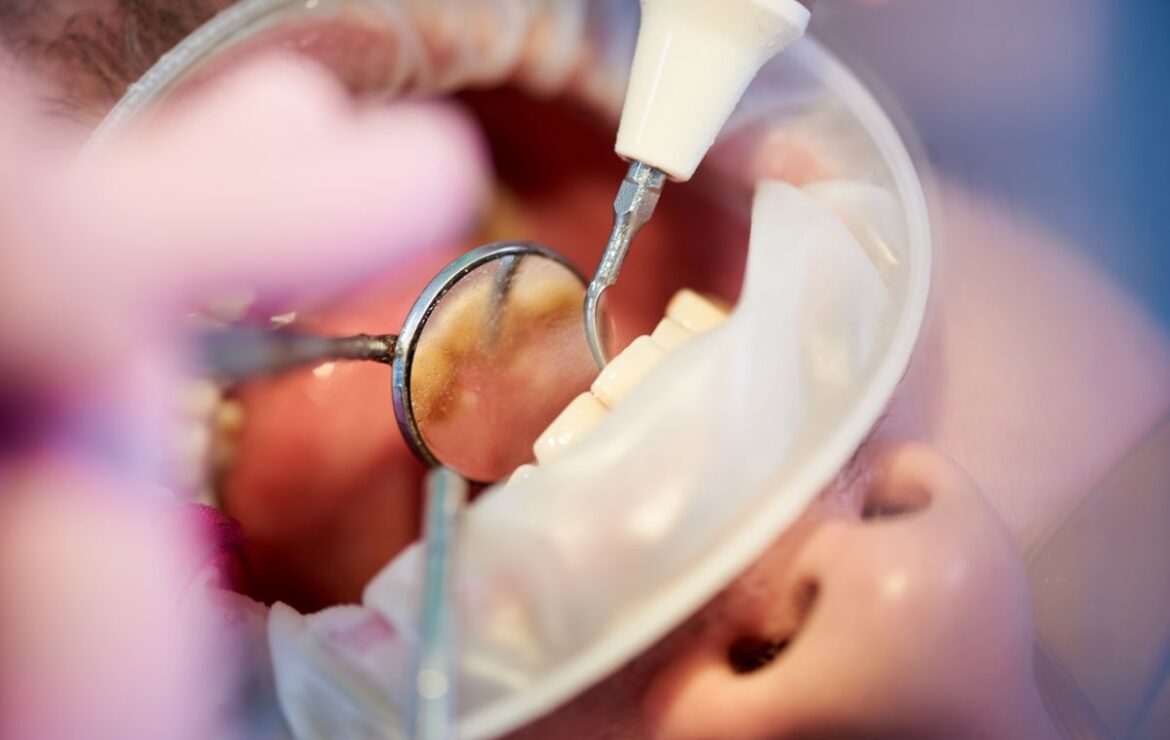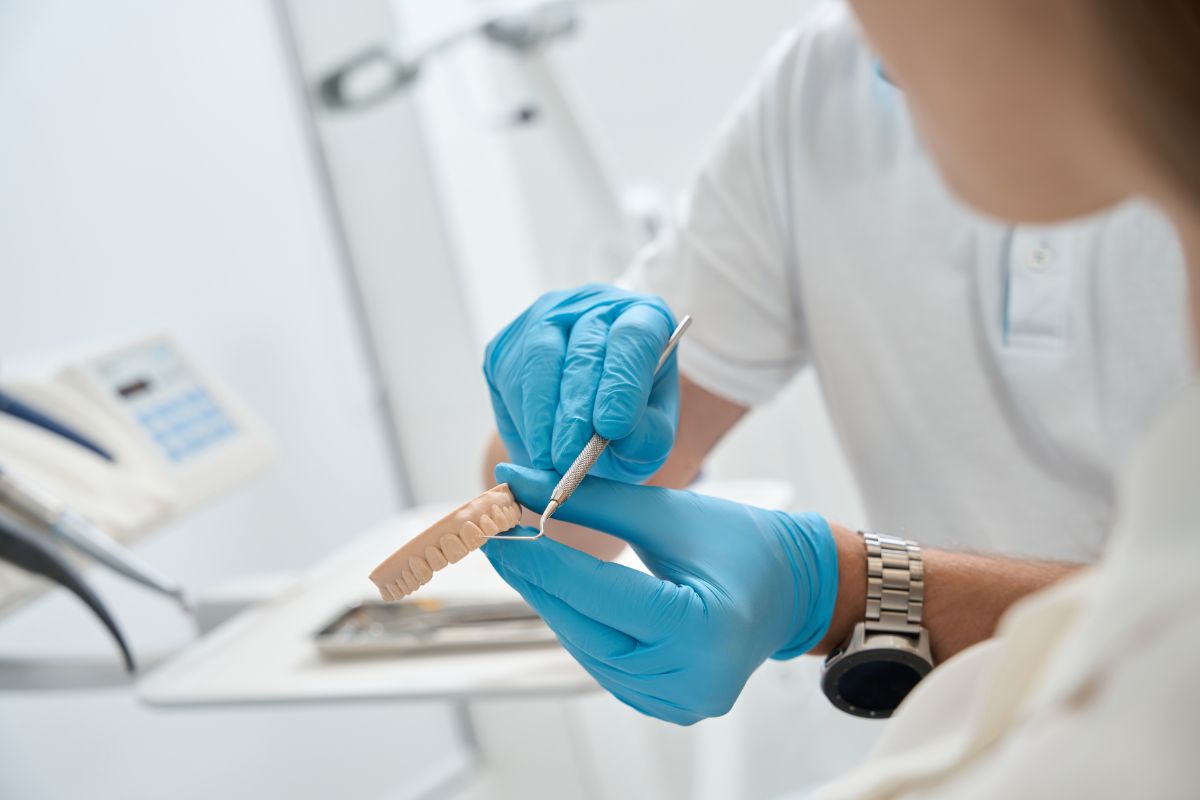Dental Plaque: What is it and How Do I Remove it?

Dental Plaque: What is it and How Do I Remove it?
What is dental plaque?
- It is a sticky film of bacteria that forms on teeth
- It may develop in everyone’s teeth
- There are various symptoms of dental plaque
- It can be prevented from forming
- It is removed by dental professionals
- It can be managed or treated easily
Maintaining good oral hygiene is crucial for healthy teeth and gums. However, dental plaque is a common problem that affects both children and adults. But, what is dental plaque? Many of us know that poor oral hygiene practices, improper brushing techniques, and the consumption of sugary foods and drinks can contribute to the development of dental plaque.
It may be difficult to give up your favorite candies and chocolates. However, if left untreated, dental can cause various dental issues, such as tooth decay, gum disease, and even tooth loss.
In this blog post, we’ll explore dental plaque in-depth, including its causes, symptoms, and treatment options. By understanding more about dental plaque, you can take steps to protect your oral health and keep your teeth and gums healthy for years to come.
It is a Sticky Film of Bacteria that Forms on Teeth
When bacteria in the mouth mix with sugary food and drinks, it creates a sticky film known as a dental plaque or biofilm that forms on teeth. This occurs in everyone’s mouth. The bacteria feed on the sugars present in the food and drinks we consume, producing acids as a result.
These acids weaken our tooth enamel and increase the risk of developing cavities. As a result, the plaque will harden into tartar and make our gums bleed easily. This can lead to gingivitis, tooth decay, or tooth loss.
It May Develop in Everyone’s Teeth
Unfortunately, dental plaque may develop on everyone’s teeth because it is a natural and continuous dental problem caused by bacteria in our mouth. Try running your tongue over your teeth and if they feel fuzzy, that’s plaque.
Since everyone has dental plaque to some degree, you may develop more plaque than usual if you:
- Consume a lot of starchy or sugary food and drinks
- Have a dry mouth due to medications
- Have a history of neck/head radiation
- Smoke or vape regularly
No worries, you can always book an appointment with us here at Elevate Dental for teeth cleaning. We use the best methods to remove this unwanted film on your teeth and even suggest the next steps to give you the smile that you long for!
There are Various Symptoms of Dental Plaque

It’s important to be aware of the symptoms of dental plaque so that you can take appropriate measures to prevent it from causing further damage to your oral health.
- Visible white or yellowish film on teeth
- Bad breath or halitosis
- Tooth sensitivity or pain
- Bleeding gums, especially when brushing or flossing
- Swollen gums
- Tartar
- Loose teeth
- Misalignment of teeth
To prevent serious dental issues, it’s best to treat dental plaque immediately.
It Can Be Prevented from Forming
Don’t stress. There are things that you can do to prevent the formation of dental plaque. It all starts with good oral hygiene. Here are some things you can do:
- Floss daily – do this at least once a day to get rid of food you eat and plaque that is stuck between your teeth. Flossing, as compared to brushing your teeth, removes more plaque.
- Brush twice a day – it’s advised by dental professionals that a person must brush their teeth twice a day with a soft-bristled toothbrush and fluoride toothpaste. Brush your teeth for two minutes, preferably after every meal.
- Eat healthy food – choosing nutritious food over sugary, starchy food helps prevent dental plaque. Try plain yogurt, cheese, raw vegetables, or fruits.
It is Removed by Dental Professionals
Don’t attempt to remove tartar at home! That’s why your dentists are here! A dentist professional uses dental instruments, such as scalers, curettes, ultrasonic scalers, air polishing devices, and interdental brushes during your regular dental checkup to find and remove plaque.
It Can Be Managed or Treated Easily

Except for scraping your teeth to remove plaque, dentists may recommend treatment depending on the symptoms of your dental plaque, such as:
- Dental sealants – it is a thin, liquid coating applied onto the chewing surfaces of your molars and premolars (back teeth). After that, a dentist hardens the sealant to protect your teeth from bacteria.
- Dry mouth medications – dry mouth is the sensation you may feel when you don’t have enough saliva produced by the salivary glands in your mouth. Your dentist may suggest you drink plenty of water, use a humidifier, breathe through your nose, or treat it using over-the-counter medications like antihistamines and decongestants.
- Fluoride treatments – in dentistry, dentists use fluoride to their patients to strengthen teeth. Specifically, it re-mineralizes tooth enamel, cures early tooth decay, and prevents the growth of cavity-causing bacteria.
Key Takeaway
In this blog post, we’ve answered the question: what is dental plaque? We also took a look at how it could affect our oral health.
To treat this, you can come visit our clinic at Elevate Dental. We are the leading dental clinic in Manila that offers top-notch cosmetic dentistry services. You may visit our Elevate Dental branches at Bonifacio Global City and Greenhills, or contact us here.












